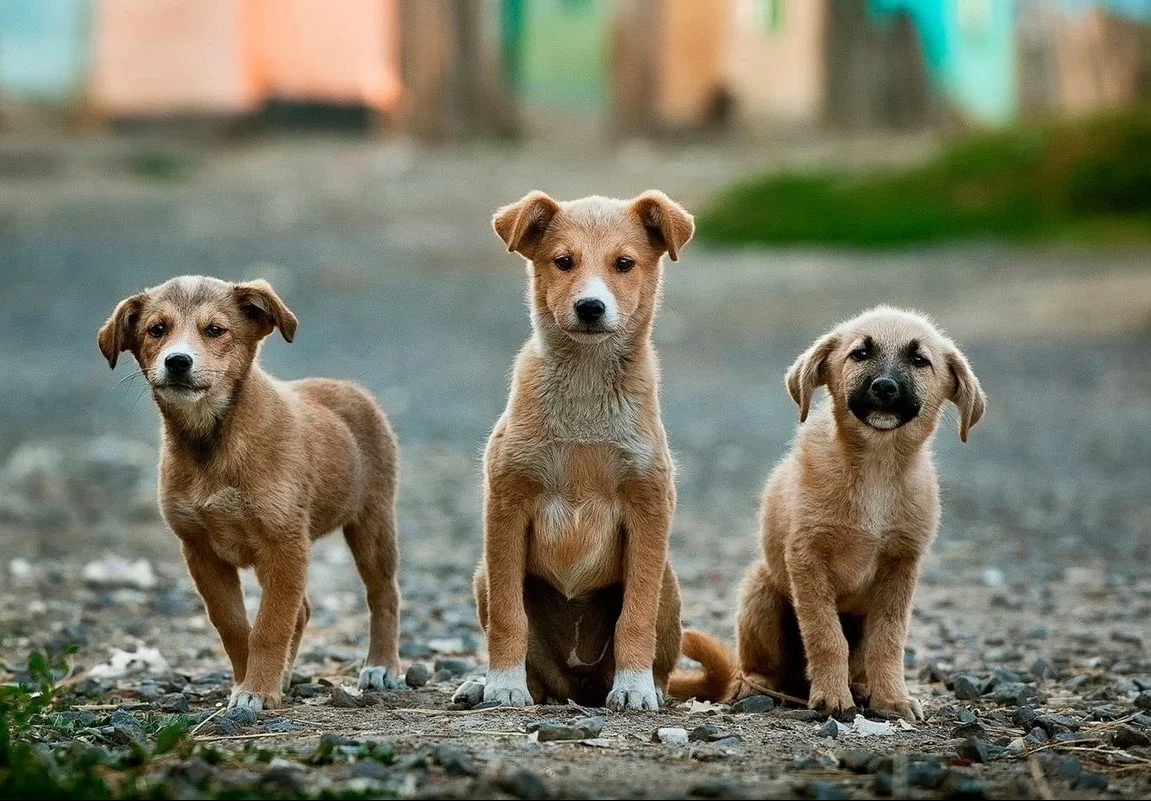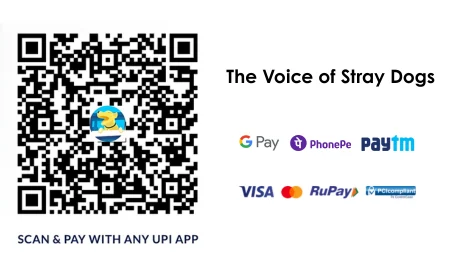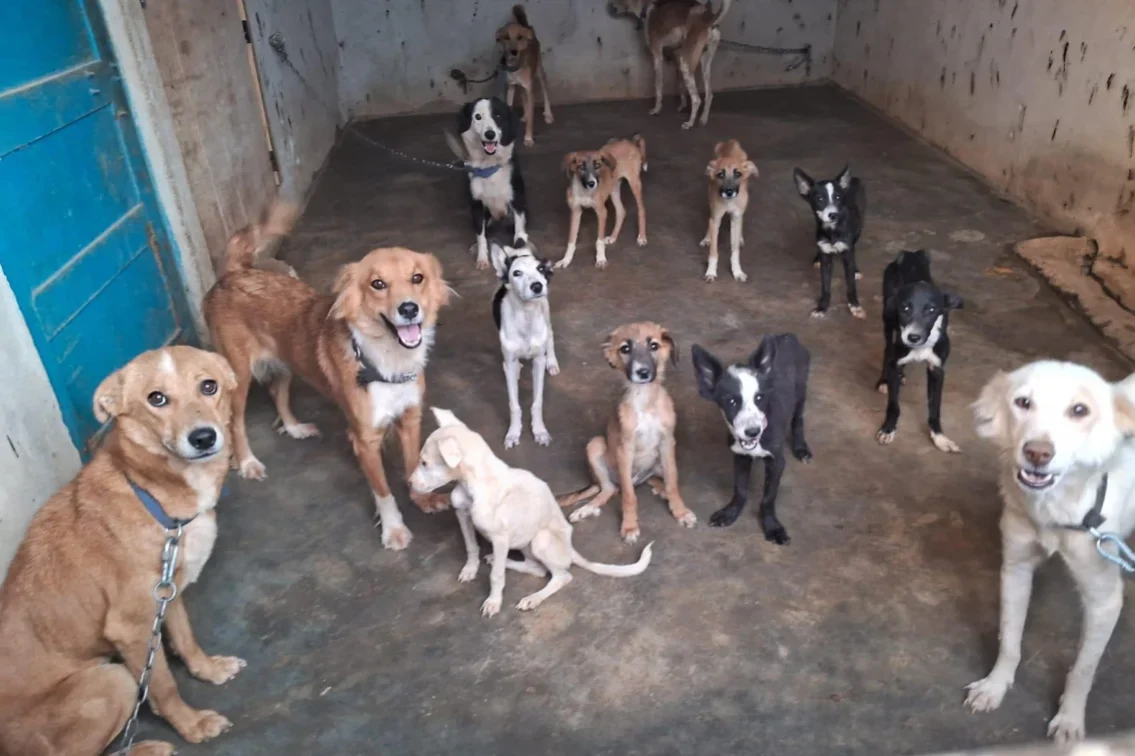
For the first time in India, there are a comprehensive set of rules notified by the Central Government (therefore applicable across ALL states) called Dog Breeding and Marketing Rules 2017 they appear in the Gazette of India here. They define the requirements to be met by the breeders and the establishments used for breeding, such as those related to health, housing facilities and conditions for sale. They are through 30 pages, but what are the parts that will help a dog rescuer use then to their advantage? This is an FAQ that will allow to figure out the most critical parts that impact your rescue:
Q: Who is a ‘breeder’?
A: The rules define a ‘breeder’ as an individual or group of persons who own dogs of specific breeds for breeding and are engaged in the sale of dogs and pups, and includes boarding kennel operators, intermediate handlers and traders. VOSD Explains: Therefore, if someone is keeping dogs at home or in a kennel they are a breeder. If they are handling the sales of dogs and pups they are breeders.
Q: What is a State Board?
A: All states will have a State Animal Welfare Board constituted by the State Government. VOSD Explains: It is this state board that will receive applications from ‘breeders’ in the prescribed format.
Q: What is the Certificate of Registration for a breeder?
A: “No breeder shall carry on or continue any breeding activity or own or house dogs for breeding and sale of dogs and pups, unless the breeder has obtained a certificate of registration in respect of the establishment being used or intended to be used by him for breeding or housing the dogs for breeding, from the State Board in accordance with these rules.” VOSD Explains: It is mandatory for all breeders to have a certificate of registration. A breeder cannot carry on business without it.
Q: How will someone know the breeder has a certificate?
A: “Every breeder shall prominently display the certificate of registration in the establishment.” VOSD Explains: It is mandatory for all breeder establishments where dogs are kept, sold, bred etc to have this certificate on display in plain view.
Q: If a breeder has several locations, say they have a place where they sell the dogs, but the dogs come from some other place, where is the certificate required?
A: “A breeder shall be required to make separate applications for every establishment being used or intended to be used for breeding or housing dogs for breeding.” VOSD Explains: If say there is one location where dogs are bred and another at which they are sold then both of these locations will need to be registered and have different certificates. If a dog is being sold in a location you should check if they are being bred in that location and that location has a certificate too.
Q: How is this certificate issued by the State Board?
A: “The State Board shall, on receipt of an application for registration under sub-rule (2), cause the establishment of the breeder to be inspected by a team comprising of an authorised representative of the State Board and a veterinary practitioner. The team referred to in sub-rule (4) shall after making inspection submit, to the State Board, a report signed by all the members of the team.” VOSD Explains: Once an application is received EACH of the breeder locations need to be inspected and the report needs to be signed by ALL the members of the State Board.
Q: What are the conditions for sale for dogs?
A: “Every breeder shall ensure that — (a) pups less than eight weeks in age are not sold; (b) dogs over six months of age are not sold without first being sterilised, unless they are being sold to another licensed breeder & (c) The breeder shall furnish to the purchaser in writing, details of feeding, dates of inoculations and de-worming of the pup and the name and address of the veterinary practitioner who was attending to it. VOSD Explains: Pups less than 8 weeks can’t be sold and those above 6 months can’t be sold UNLESS they are sterilised. Un-neutered dogs can ONLY be sold to another breeder with a certificate. ALL sales need to be accompanied by a full medical declaration.
Q: Who is responsible that dogs are sold to a home that has the capacity to take care of their requirements?
A: “Every breeder shall screen prospective purchasers to ascertain their potential to take proper care of the breed, especially if it is a large one, to attend to its grooming, socialising, spatial and veterinary needs, and to bear the expense for its upkeep and maintenance.” VOSD Explains: It is the breeder that needs to do the background check, verify the purchaser and maintains a history of sales.
Q: How will be breeder know that the family that has bought the dog will take care of the dog?
A: “The breeder shall keep track of all pups produced and sold and it shall be the responsibility of the breeder to obtain information regarding the progress and state of health of all dogs sold by him, at least once each year.” VOSD Explains: It is the breeder that needs to go back and visit the dog and its owners at least once a year and maintain records, so breeder continues to be responsible after the sale of the dog.
Q: What is the breeder is selling the dog not to a family but a pet shop?
A: “No breeder shall sell a dog to a pet shop operating without a licence or for any other activity which is in contravention of any other law.” VOSD Explains: In case the breeder is selling to a pet shop it is the responsibility of the breeder to ensure that the pet shop is certified, that is the responsibility continues to rest with the breeder.
Q: What happens to pups that are more than 6 months old and that can’t be sold?
A: “Every breeder shall rehabilitate a pup not sold within a period of six months, through an Animal Welfare Organisation.” VOSD Explains: In view of the expected large number of breeder surplus or unsold dogs any such dogs will be accepted by VOSD provided a rescuer has neutered and vaccinated them with the DLHPPi vaccine.
Q: Who can give the breeders license? Can BBMP, anyMunicipal Corporation, local authority or administration give this license?
A: “No establishment being used or intended to be used for breeding or housing dogs for breeding shall be granted any licence by the local authority, unless the breeder has obtained a certificate of registration from the State Board in accordance with these rules.” VOSD Explains: No municipal corporation or any local body can give any shops and establishment or tax license to a breeder unless the State Board first issues a certificate.
Q: What are the conditions of upkeep of the dogs with breeders?
A: The conditions of keeping dogs is described in detail in the rules. However, the following are important for any rescuer to ensure: “Care and upkeep of dogs.— The dogs shall be supplied with— (a) adequate quantity of wholesome food at suitable intervals of not more than eight hours, and suitable for that species and age and enough to maintain a reasonable level of nutrition in each animal and served in a safe receptacle, dish or container; (b) adequate supply of fresh, clean drinking water in a safe receptacle, dish or container and available at all times; and (c) a fenced area for adequate exercise or provision for exercising the dog on a leash exists.” VOSD Explains: Not only is it important for dogs to have access to food and water, they need to have an exercise area.
Q: Which dogs can be bred and are there any restrictions on the age of mothers, the number and frequency of litters etc?
A: Any rescuer should verify that the law maintains that: “(a) Only normal, healthy, mature female dogs that have reached their eighteenth month shall be bred, (b) they have to be certified as healthy by a veterinary practitioner at least ten days prior to their being bred (c) No female dog shall be exploited to produce litters in two consecutive breeding seasons. (d) Female dogs shall not be used such that they give birth to pups before the end of the period of twelve months beginning with the day on which they last gave birth to pups (e) Only one litter shall be produced in one year and artificial or unnatural techniques such as artificial insemination and rape stands shall not be used to impregnate dogs (f) No female dog shall be exploited to give birth to more than five litters of pups during her lifespan. (g) No male dog shall be used for breeding unless he is a healthy, mature dog, and only after he has reached his eighteenth month and shall be certified as healthy by a veterinary practitioner at least ten days prior to his being mated. VOSD Explains: Female dogs only above 18 months of age can be bred and cannot have more than 1 litter in 1 year and cannot have more than 5 litters in her entire lifespan.
Q: What is the essential medical record keeping by a breeder?
A: “(a) The consultant veterinary practitioner shall visit the establishment periodically, at regular intervals (b) medical examination of each dog at the establishment shall be conducted at least once every month and a (c) record of the same shall be maintained by the breeder (d) Individual health records shall be maintained of all animals above the age of eight weeks, or that have been weaned, or that have been treated with a medical procedure, whichever occurs first.” VOSD Explains: It is now mandatory for EACH dog to have a medical history throughout life in at least one-month intervals.
Q: What is the essential record keeping by a breeder for individual dogs?
A: “Every breeder shall maintain records of individual dogs, both male and female, including the following information, (a) breed (b) name and number (or litter number) (c) micro-chip number (d) sex, colour and markings (e) date of birth (f) names and microchip numbers of sire and dam (g) name of breeder from whom acquired (where applicable)” VOSD Explains: Each dog with a breeder needs to be identifiable AND microchipped.
Q: Can a breeder euthanise a dog?
A: “Dogs shall not be euthanised (a) just because they can no longer breed or (b) can not be sold and therefore not commercially viable and (c) all euthanasia of mortally wounded or injured animals or incurably sick or terminally ill animals shall be accomplished by a registered veterinary practitioner under Veterinary Council of India or the State Veterinary Council in a manner and through a method approved by the Veterinary Council of India and (d) the records including post mortem report shall be maintained of all animals euthanised, and (e) all carcasses including those that naturally died must be incinerated and shall not be sold.” VOSD Explains: No breeder can euthanise a dog other than grave illness or injury and the vet has to authorise, records kept and body incinerated.





